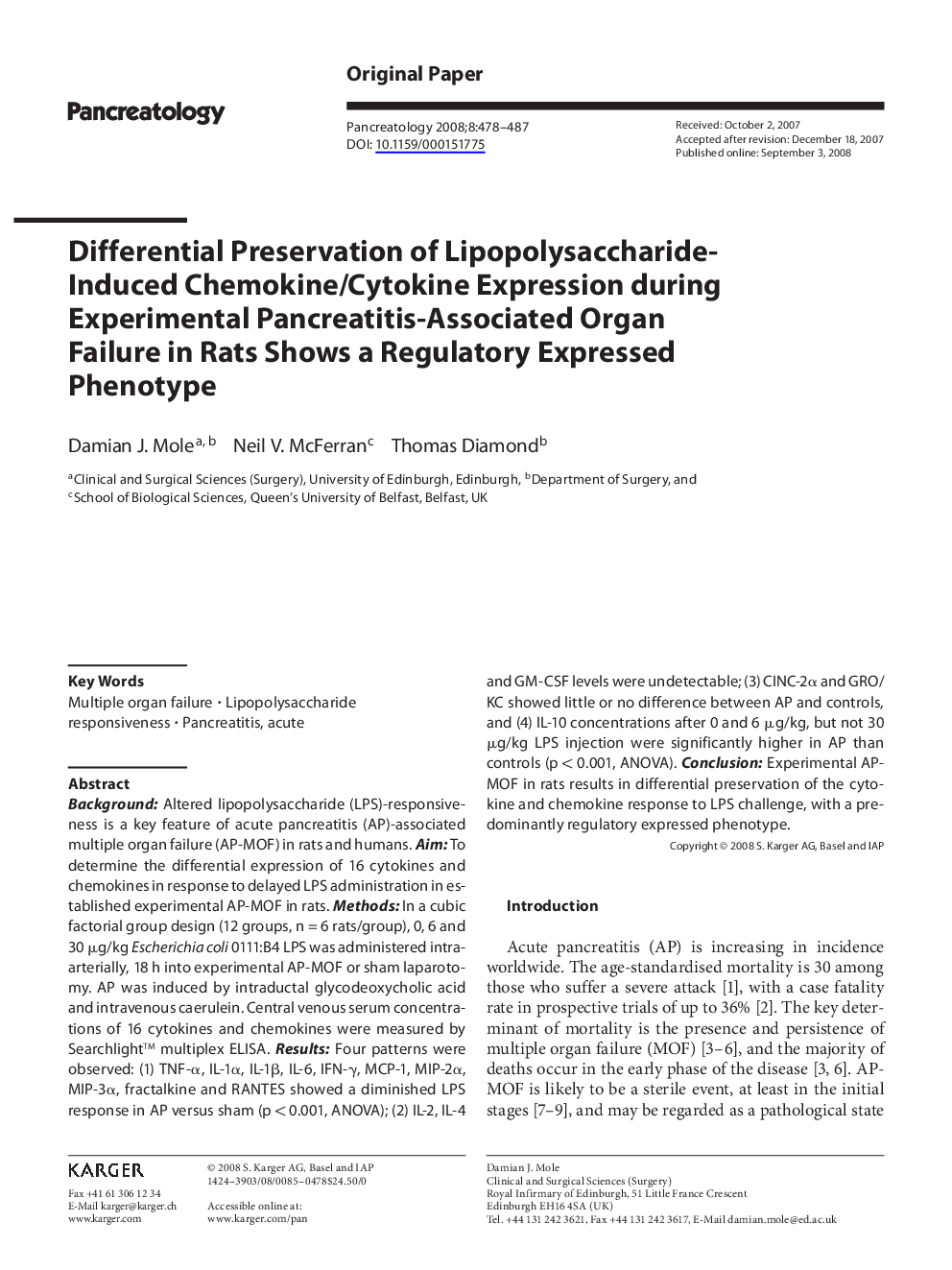| Article ID | Journal | Published Year | Pages | File Type |
|---|---|---|---|---|
| 3318239 | Pancreatology | 2008 | 10 Pages |
Abstract
Background: Altered lipopolysaccharide (LPS)-responsiveness is a key feature of acute pancreatitis (AP)-associated multiple organ failure (AP-MOF) in rats and humans. Aim:To determine the differential expression of 16 cytokines and chemokines in response to delayed LPS administration in established experimental AP-MOF in rats. Methods: In a cubic factorial group design (12 groups, n = 6 rats/group), 0,6 and 30 μug/kg Escherichia coli 0111:B4 LPS was administered intra-arterially, 18 h into experimental AP-MOF or sham laparotomy. AP was induced by intraductal glycodeoxycholic acid and intravenous caerulein. Central venous serum concentrations of 16 cytokines and chemokines were measured by Searchlight⢠multiplex ELISA. Results: Four patterns were observed: (1) TNF-α, IL-Iα, IL-1β, IL-6, IFN-γ, MCP-1, MIP-2α, MIP-3α, fractalkine and RANTES showed a diminished LPS response in AP versus sham (p < 0.001, ANOVA); (2) IL-2, IL-4 and GM-CSF levels were undetectable; (3) CINC-2α and GRO/ KC showed little or no difference between AP and controls, and (4) IL-10 concentrations after 0 and 6 μug/kg, but not 30 μg/kg LPS injection were significantly higher in AP than controls (p < 0.001, ANOVA). Conclusion: Experimental AP-MOF in rats results in differential preservation of the cytokine and chemokine response to LPS challenge, with a predominantly regulatory expressed phenotype.
Related Topics
Health Sciences
Medicine and Dentistry
Gastroenterology
Authors
Damian J. Mole, Neil V. McFerran, Thomas Diamond,
